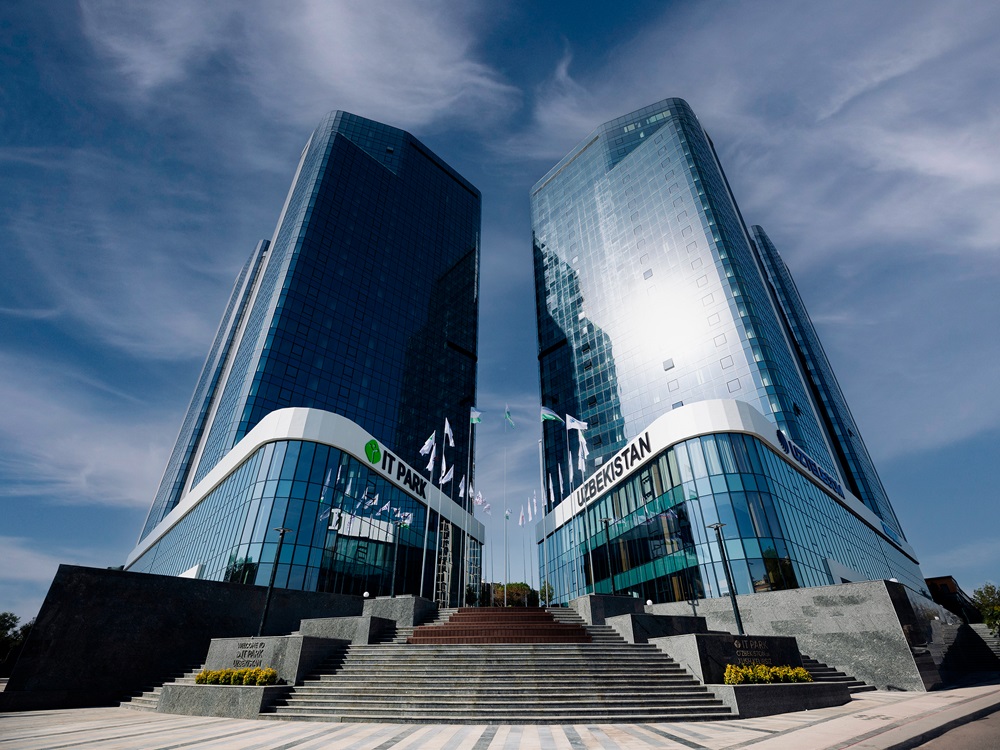Uzbekistan's tech revolution: attracting global players’ investment in IT and BPO sectors
Amidst the evolving landscape of Central Asia, Uzbekistan has emerged as a beacon of economic reform and technological advancement. In an exclusive interview with Sherzod Shermatov, Minister of Digital Technologies of the Republic of Uzbekistan, we delve into the factors fueling the country's burgeoning appeal to foreign investors, particularly in its rapidly growing IT and BPO sectors.
Wiktor Doktór, Pro Progressio: Could you provide an overview of why Uzbekistan is gaining an increasing attention from foreign investors? What are the leading sectors attracting foreign investment, and what does the investment landscape look like in terms of major cities or regions where these investments are concentrated?
Sherzod Shermatov, Minister of Digital Technologies of the Republic of Uzbekistan: Uzbekistan serves as a strategic crossroads between Europe and Asia and stands as the most populous nation in Central Asia. Since President Shavkat Mirziyoyev assumed office in 2016, the country has embarked on extensive economic reforms aimed at eliminating bureaucracy, attracting investments, and fostering entrepreneurship.
These reforms include streamlining business creation procedures, liberalizing the currency market, reducing taxes, and overall improving the investment climate. Additionally, the government is actively investing in modernizing the country’s infrastructure with a particular emphasis on the digital technology sector.
Within a few years of embracing a digitalization agenda, which includes the establishment of IT Park Uzbekistan, a free economic zone dedicated to crafting the world's finest conditions for offshore outsourcing, Uzbekistan’s IT industry has seen remarkable growth. With a mission to build and sustain trust in the global business while developing the local edge in global outsourcing, IT Park Uzbekistan offers a unique proposition where talent and affordability meet the world's simplest conditions and compliance. This concerted effort has positioned the industry as a pivotal driver of economic growth. The “Digital Uzbekistan 2030” strategy outlines ambitious goals for complete digital transformation, with the primary objective of increasing the export volume of IT services to $5 billion annually.
To achieve this, the country is creating favorable conditions to attract foreign companies, implementing specialized programs to support businesses, and offering various incentives for IT firms. While Tashkent, as the capital and largest city, naturally attracts the majority of investments, recent efforts have been directed towards regional development.
Notably, initiatives like the Zero Risk program by IT Park actively encourage foreign companies to establish offices in various regions of Uzbekistan. Furthermore, IT Park has branches in every region, actively developing IT infrastructure and entrepreneurial environments nationwide.

Can you discuss some specific factors or trends that make Uzbekistan an attractive destination for foreign investors in IT and BPO industries, and how do you envision these sectors contributing to the country’s economic growth and development?
Nearly two-thirds of the country’s 36-million population consists of youth under 30, highly literate and proficient in foreign languages. For instance, over 5 million young individuals are fluent in English. Moreover, the average salary for IT specialists in Uzbekistan starts at $500, making it notably appealing for international companies.
Companies investing resources in Uzbekistan can significantly cut costs by leveraging access to skilled IT professionals at an attractive price point. In an environment where the youth possesses high proficiency in foreign languages and technical skills, the opportunities for effective business development become unprecedented.
Additionally, the government provides comprehensive support to IT companies. In particular, the resident status of IT Park offers substantial tax bene fits. Non-residents pay corporate tax ranging from 4-12%, whereas residents are exempt. The social tax for nonresidents is 12%, while residents pay 0%. The income tax for non-residents is 12%, compared to 7.5% for residents. Non-residents incur VAT on imported services, while residents do not.
Thanks to these conditions, as of today, 1,754 companies have obtained resident status in IT Park Uzbeki stan, including 453 with foreign capital participation. This list encompasses major organizations such as East Games, iTransition, Epam Systems, Data Orchestra, AER-CA, Qulix, AMC Bridge, and others.
Undoubtedly, these factors contribute to the economic growth and development of Uzbekistan, stimulating the creation of new jobs, enhancing the export potential of the country, and fostering innovation and technological advancement.
Building robust IT infrastructure is crucial for the success of IT and BPO investments. From your perspective, how is Uzbekistan currently positioned in terms of its technological infrastructure, and what measures are being taken to enhance it to meet the demands of foreign investors?
Key factors contributing to the development of the IT industry and digital transformation in the country include a modern IT infrastructure and high-quality IT education aimed at preparing highly skilled professionals.
The Internet connection bandwidth is consistently increasing and reached 3200 Gbps by March 2023, with Internet coverage across the country standing at 99%. Uzbekistan boasts the 25th position globally (according to Cable.co.uk for 2023) for the affordability of Internet services, with 32 million users. This reflects the country’s commitment to providing accessible and cost-effective Internet services.
Understanding the legal framework is essential for foreign investors. Could you shed some light on the regulatory environment in Uzbekistan concerning IT and BPO investments? Are there any recent regulatory changes or incentives that foreign investors should be aware of?
The government pays significant attention to our industry, and as a result, regulatory acts are enacted to streamline and facilitate investment activities in IT and BPO. Here are some examples:
- On June 30, 2017, by the initiative of President Shavkat Mirziyoyev, Decree No. 5099 “On measures for the radical improvement of conditions for the development of the information technology industry in the republic” was adopted. This decree created favorable conditions for the development of the IT industry by providing additional benefits and preferences to developers and customers of information technology products, promoting the export of ICT products, and stimulating the attraction of domestic and foreign investments.
- On January 10, 2019, the Cabinet of Ministers of the Republic of Uzbekistan approved Resolution No. 17 “On measures to create a Technology Park of software products and information technologies”. This resolution aimed to create favorable conditions for further development of the IT sector, support in promoting software and high- tech products, and led to the establishment of IT Park.
- On July 15, 2019, the Cabinet of Ministers of the Republic of Uzbekistan approved Resolution No. 589 “On measures to organize the activities of the Technology Park of software products and information technologies”, which outlined the procedure for organizing the activities of the Technology Park.
- On February 1, 2024, President of the Republic of Uzbekistan issued Decree No. 25 “On the establishment of the International Center for Digital Technologies”. This decree, aimed at increasing the export of IT services to $5 billion, creating 100,000 jobs, and providing more attractive conditions for foreign companies-residents of IT Park, led to the establishment of the International Center for Digital Technologies (Enterprise Uzbekistan) within IT Park.
This center will be a special zone with attractive conditions for creating digital technology and outsourcing products and services. It will include a regulatory sandbox, intellectual property and personal data protection, government and banking services, regulation of labor relations, as well as support in customs and tax matters, and resolution of commercial and civil disputes.
The center will launch on June 1, 2024, in an experimental mode lasting for 5 years, during which an experimental special legal regime will be introduced.
The availability of skilled talent is often a critical factor for IT and BPO companies. What initiatives or programs are being implemented in Uzbekistan to develop and empower local talent in these sectors? Moreover, how are local professionals being prepared to seize opportunities in these industries, particularly regarding language proficiency and technical expertise?
More than 10,000 schools across the country are equipped with high- speed Internet. Under projects like “English speaking nation” and “IT nation”, Uzbekistan has established a digital education ecosystem, enabling students to embark on their IT journey from school. The country boasts 65 universities with IT-focused disciplines, including the Tashkent University of Information Technologies with its six regional branches, as well as universities like INHA, Amity, and others. These institutions annually produce over 30,000 highly educated professionals in fields such as artificial intelligence, data science, information security, engineering, and more.
The number of private educational institutions – residents of IT Park, benefiting from state incentives, has grown to 394. They offer over 400 educational IT courses, attended by more than 30,000 individuals. In collaboration with EPAM Systems, the first online university, IT Park University, was established, currently educating around 400 students.
This comprehensive educational framework ensures that local talent is well-equipped with language proficiency and technical expertise, preparing them to capitalize on opportunities in the dynamic fields of IT and BPO.
Thank you very much, Minister Shermatov, for sharing such insightful perspectives on Uzbekistan’s development.
This article comes from magazine:
FOCUS ON Business #15 March-April (2/2024)
 Check the issue
Check the issue







